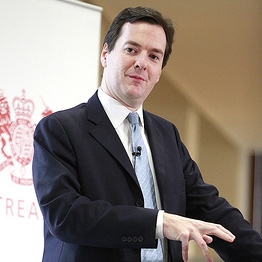Exclusive GPs will have to pay an extra 1% for their staff from 2019/20, it has been claimed, as the Government was accused of putting through ‘stealth cuts’ to the NHS with last week’s spring Budget announcement.
In the Budget, Mr Osborne announced that the Treasury plans to reduce the public service pension scheme discount rate to around £2bn from 2019/20.
But cuts to the NHS totalling around £650m were hidden in the small print of his Budget, according to research conducted by the Liberal Democrats.
Nuffield Trust senior policy analyst Sally Gainsbury, supporting the research, said this did amount to ‘stealth cuts’ and that this would have a significant impact on GP practices’ staff pay bill.
She said: ‘It looks like we are looking at about 1% of paybill for GPs – it could be that their paybill will go up by 1% assuming all those things carry through.
’I have estimated the total cost to the NHS to be in the region of £650m. The total NHS pensions liability is a third of the total public sector pension liability, the Treasury is claiming that it can’t give a figure until 2018. That will affect GP practices insofar as they are employers who employ people who are part of the NHS pension scheme.’
Ms Gainsbury said that GPs would be hit in two ways: ‘As employers they will have to make higher contributions from 2019 onwards but also as commissioners they are going to be hit as this is across the board so hospitals are going to have to be reimbursed, tariff prices are going to go up – this is a very sticky year for these to go up.’
No concrete figures for the cuts will be given until 2018, which many see as a problem in itself as GPs and other NHS employers will have little time to manage cash flow before the cuts come into force in 2019/2020.
GPC deputy chair Dr Richard Vautrey highlighted that the GPC negotiated a £220m increase in funding to cover rising expenses for 2016/17 and would ’expect to negotiate similar agreements to cover practice expenses in the future’.
But Ms Gainsbury pointed out that ‘they will be [attempting] this at the same time as every other part of the health service’.
Paul Samrah, a senior accountant at Kingston Smith, said: ‘There’s so much uncertainty about all these measures and it makes cash flow management extremely difficult for GPs. Taxes have become simplified but pensions have become arduous. You can now tax plan but can you pension plan?
’The best advice I could give is to take advice as you get closer to retirement because things are changing all the time.’
Family Doctor Association chair Dr Peter Swinyard said that this would be a ‘real blow’ to practices already struggling with reducing resources.
He said: ’Staff costs are the main item on a practice budget and employees have a right to a decent pension. But there is no spare cash in GPs’ pockets to pay for this – and the vast rises in indemnity costs and CQC impositions are making many previously profitable practices unsustainable.
’If imposed, and if as significant as forecast, the rise in GP contributions to their staff’s pensions will either lead to more practice closures or to staff redundancies, thereby worsening services to patients.’
The Treasury has dismissed GP fears and said that practices would have time to prepare for the changes.
A Treasury spokesperson said: ‘The review of the discount rate was always planned for now. It’s right that we are transparent about future costs and departments will have three years to consider how best to manage these pressures.
‘Specifically on the NHS, Spending Review 2015 increased real terms NHS funding by £10bn. The NHS has time to plan how it will absorb this extra pressure from 2019-20.’
Commenting on his party’s analysis, Liberal Democrat leader Tim Farron said: ‘David Cameron said he would do whatever it takes to fill the NHS black hole, and we’ve now discovered that actually means cutting £650m just to help the Chancellor’s Budget-day balance sheet.’
Erosion of GP funding
The Government has agreed to a 3.2% increase worth £220m overall as part of the concluded contract negotiations for 2016/17 – potentially leading to the largest pay increase in 10 years.
But the GPC said at the time that this funding, which was calculated to allow for a 1% increase in pay for GP partners, was not enough to rescue general practice from the state of emergency that it is in.
At the time of the funding increase announcement, health secretary Jeremy Hunt said he was ‘determined’ to provide GPs with support, as they were the ‘bedrock of the NHS’. However, Mr Hunt may require a word with his colleague, Chancellor George Osborne, if he wants to make this a reality.

















